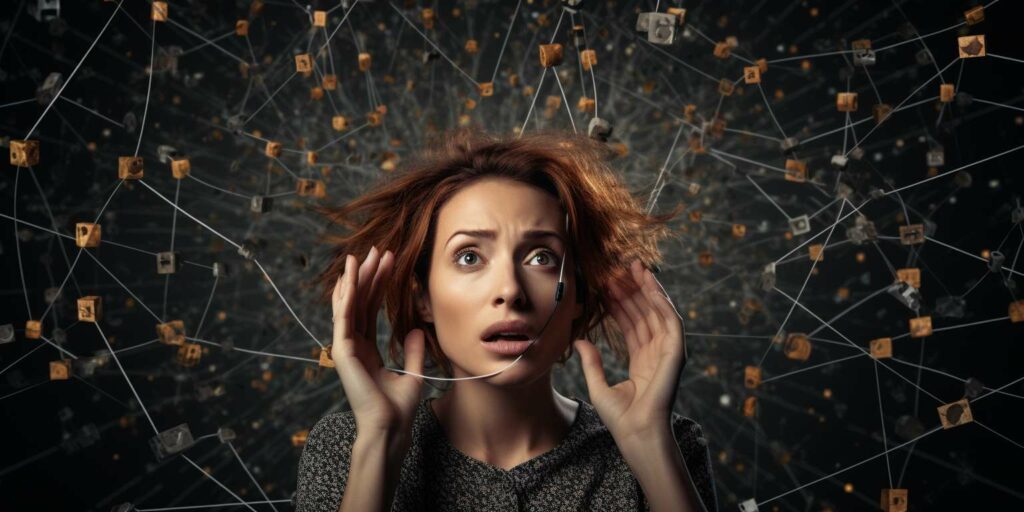When it comes to understanding the human mind, few tools are as crucial as a psych evaluation. I’ve found that these evaluations, often administered by licensed psychologists or psychiatrists, can shine a light on an individual’s mental health status. They offer valuable insights into a person’s thoughts, feelings, and behaviors, helping us to understand not just what is happening in their minds but also why.
Now you may be wondering: how does this process work exactly? Well, let me break it down for you. Typically, a psych evaluation involves one-on-one interviews, questionnaires and sometimes specific psychological tests. It’s all designed to paint an accurate picture of a person’s mental state.
However, it’s important to remember that these evaluations aren’t meant to label or stigmatize anyone. Instead they’re tools for diagnosis and treatment planning – stepping stones on the path towards better mental health. As someone who knows firsthand how beneficial they can be, I firmly believe in their power to help individuals navigate the complexities of their own minds with more clarity and confidence.
Understanding the Basics of Psych Evaluation
Diving headfirst into the fascinating world of psychology, let’s tackle an often misunderstood concept – psych evaluations. These aren’t your run-of-the-mill questionnaires but rather in-depth assessments carried out by trained professionals.
A psych evaluation, or psychological evaluation, is a mental health assessment where a professional examines your behavior, symptoms and capabilities to make a diagnosis. It’s akin to taking your mind for a check-up! The process may include interviews, direct observations and administering standardized tests.
Let’s clarify some common misconceptions too. Many people think these evaluations are only meant for those with severe mental disorders. That’s not true! They’re used as tools to understand various aspects like cognitive abilities, personality traits and potential emotional issues. Whether it’s about dealing with stress at work or understanding why you can’t seem to focus on tasks – psych evaluations can provide valuable insights.
Here are some key components typically found in these assessments:
- Interviews: This involves discussing personal experiences, feelings and behaviors.
- Observations: Observing how individuals interact with others or react to certain situations.
- Standardized Tests: Like IQ tests or personality assessments which offer quantifiable results.
Importantly though, always remember this isn’t about ‘passing’ or ‘failing’. It’s all about understanding yourself better. After all, our minds are complex entities and sometimes we need a little help untangling the web!
So there you have it – my brief guide on the basics of psych evaluations. Remember that knowledge is power – especially when it comes to understanding our own minds!
Why a Psych Evaluation is Necessary
A psych evaluation often serves as the first crucial step in diagnosing and treating mental health issues. I can’t stress enough how critical it’s to identify these concerns early, whether they’re related to depression, anxiety, or more complex disorders like schizophrenia.
One of the primary reasons why a psych evaluation is necessary lies in its ability to provide an accurate diagnosis. It’s all too easy for individuals to self-diagnose based on internet research, but that path rarely leads to effective results. A professional diagnosis through a comprehensive evaluation not only provides clarity but also paves the way for personalized treatment plans.
Let’s take a look at some numbers:
| Condition | Percentage of U.S population affected |
|---|---|
| Anxiety Disorders | 18.1% |
| Major Depressive Disorder | 6.7% |
| Posttraumatic Stress Disorder (PTSD) | 3.5% |
These stats underscore the prevalence of mental health issues in our society, making it evident why psych evaluations are so vital.
Moreover, these evaluations aren’t just beneficial for those struggling with mental illnesses; they’re equally useful for people navigating major life changes or dealing with high-stress situations. Whether it’s starting a new job, going through a divorce or coping with loss, undergoing an evaluation can equip you with coping mechanisms and strategies tailored specifically for your situation.
Finally, remember that preventive care isn’t exclusive to physical health – it applies equally well in the realm of psychology! Regular psych evaluations can help detect potential issues before they escalate into full-blown disorders. So yes – if you’ve ever wondered why a psych eval is necessary – there you have it: It enlightens diagnoses and treatments while serving as key preventive healthcare tool!
In my perspective as an expert blogger on this topic – don’t underestimate their importance!
The Process Involved in Psych Evaluation
When I’m asked about the process involved in a psych evaluation, it’s not a one-size-fits-all answer. There are several steps that professionals take to ensure an accurate understanding of a person’s mental health status. These evaluations can be critical for people who may be dealing with mental health disorders or other psychological issues.
First off, let me clarify what we’re talking about when we say “psych evaluation.” This is essentially an assessment carried out by a trained mental health professional to understand and diagnose any potential psychiatric disorders. Various techniques such as interviews, behavioral observations, and specific tests are employed during this process.
A typical psych evaluation usually begins with an initial interview. Here, you’ll sit down with a psychologist or psychiatrist who’ll ask you various questions about your symptoms, history, and lifestyle. They might delve into topics like your sleeping habits, feelings of anxiety or depression, family history of mental illness – all in the name of getting a comprehensive picture of your current state.
Post this session; they’d usually administer psychological tests if necessary. Now these aren’t like your usual school tests! Psychological tests could involve questionnaires or tasks designed to measure aspects such as cognitive abilities (think memory or attention), personality traits, mood states etcetera.
The results from these assessments help paint a more detailed image of what’s going on inside someone’s mind. But remember – these evaluations don’t just end at diagnosis! The information collected serves as the foundation for creating an effective treatment plan tailored specifically to the individual’s needs.
Lastly but importantly – confidentiality is key throughout this process. Rest assured that whatever information shared during an evaluation will remain between you and your healthcare provider unless there is risk involved.
Here’s how it typically pans out:
- Initial Interview
- Assessment through standardised psychological tests
- Diagnosis based on analysis
- Treatment planning
Remember though – every individual is unique, and so this process might vary slightly based on your specific circumstances. Nonetheless, it’s good to have an idea of what you can expect when going into a psych evaluation.
Different Types of Psych Evaluations
Diving into the world of psychology, it’s impossible to ignore the importance of psych evaluations. These assessments are critical tools that psychologists use to understand an individual’s mental health better. And guess what? They’re not all the same. In fact, there’s a wide variety of psych evaluations, each designed for specific purposes.
First off, let’s talk about Diagnostic Evaluations. These types of assessments aim to identify if an individual is suffering from any psychological disorders such as depression, anxiety or bipolar disorder. The evaluation involves a series of questions related to symptoms and behaviors associated with these conditions.
Next up are Neuropsychological Evaluations which delve deeper into understanding how someone’s brain functions. This type involves tests that measure cognitive abilities like memory, attention, problem-solving skills and language proficiency. It’s particularly useful when working with individuals who have suffered brain injuries or neurological diseases.
Then there’s Vocational Assessments – useful tools for career counselors and professionals involved in employment-related services. They focus on identifying an individual’s strengths, aptitudes and interests to help guide them towards suitable career paths or job opportunities.
A fourth type worth mentioning is Forensic Evaluations, often used within the legal system. These assessments can be requested by courts to establish facts about an individual’s mental state at the time of a crime or their ability to stand trial.
Lastly but certainly not least are Educational Assessments which are used extensively within schools and academic institutions. Their primary purpose? To identify learning difficulties or disabilities among students so they can receive appropriate support and accommodation.
So you see, psych evaluations aren’t just “one size fits all”. They come in many flavors each serving distinct needs within different contexts:
- Diagnostic Evaluations
- Neuropsychological Evaluations
- Vocational Assessments
- Forensic Evaluations
- Educational Assessments
It’s fascinating how varied yet specialized this field has become, isn’t it? And remember, these evaluations aren’t just for identifying problems. They’re also about understanding strengths and abilities – the first step towards effective treatment or intervention strategies.
Purpose and Outcomes of a Psych Evaluation
Let’s dive right into the heart of the matter. A psych evaluation, or psychological evaluation, serves as a valuable tool in understanding an individual’s mental health status. It’s akin to taking your car for routine check-ups; you’re making sure everything is running smoothly under the hood.
The primary purpose of this process? To diagnose any existing mental health disorders accurately. That could be anything from depression and anxiety, to more complex conditions such as schizophrenia or bipolar disorder. By getting an accurate diagnosis, individuals can then access the appropriate treatment and support they need to manage their condition effectively.
So how does it work? Well, during a psych evaluation, clinicians will use various assessment tools including interviews, questionnaires and tests to gather information about a person’s behavior, mood, cognitive abilities, and personality traits. It’s like putting together pieces of a puzzle to get a complete picture of one’s mental state.
I understand there might be some questions around its outcomes too. The outcomes of these evaluations can have profound effects on an individual’s life – both personally and professionally. They can influence decisions related to therapy type and duration, medication prescription, academic accommodations at school or university settings as well as workplace adjustments.
Here are some key points:
- Psych evaluations help diagnose mental health disorders
- These diagnoses allow for appropriate treatment plans
- Evaluations use interviews, questionnaires and tests
- Outcomes affect personal life & professional scenarios
Remember folks! Mental health is just as important as physical health – if not more so! Understanding where you stand with your psychological wellbeing is fundamental in navigating life successfully.
Benefits and Limitations of Psych Evaluations
Let’s delve into the world of psych evaluations. They’re a vital tool in the mental health field but like anything else, they come with their fair share of benefits and limitations.
One major benefit is that psych evaluations can help identify mental health disorders. It’s through these assessments that professionals can diagnose conditions such as depression, anxiety, or bipolar disorder. This diagnosis then paves the way for treatment plans tailored to an individual’s needs. Another advantage is that these evaluations can shed light on a person’s personality traits, coping mechanisms, and patterns of behavior.
However, it wouldn’t be fair if I didn’t mention some limitations too. For one thing, results are based on self-reported data which might not always be accurate or complete due to memory lapses or reluctance to disclose certain information. There’s also a risk of misinterpretation by professionals which could lead to incorrect diagnosis or ineffective treatment plan.
| Benefits | Limitations |
|---|---|
| Identification of mental health disorders | Might not always be accurate due to reliance on self-reported data |
| Understanding individual’s personality traits | Risk of misinterpretation |
Despite these drawbacks though, it’s worth noting that the pros generally outweigh the cons when it comes to psych evaluations. They remain a crucial part in understanding and managing mental health effectively.
Ultimately though, remember this – while these tests provide valuable insights about an individual’s psychological state, they do not define them completely as human beings are complex creatures influenced by numerous factors beyond what any test could measure.
Case Study: Effectiveness of Psych Evaluation in Healthcare
From my experience, I’ve found that psych evaluations play a pivotal role in healthcare. These assessments are often instrumental in diagnosing mental health disorders early, allowing for more effective treatment plans. Let’s consider an example to illustrate this point further.
A few years back, a 45-year-old patient walked into the clinic presenting with symptoms of chronic fatigue and loss of appetite. Initial tests for physical ailments came back negative, so the healthcare team decided on a psych evaluation as the next step.
The evaluation revealed that the patient was suffering from severe depression – something that had been overlooked by previous medical practitioners who focused only on physical symptoms. Promptly diagnosed through psych evaluation, appropriate therapy and medication were administered which led to significant improvements in his condition within six months.
This single case study underscores just how critical psych evaluations can be within healthcare settings. However, let’s not stop there; take a look at these compelling statistics:
| Statistical Indicator | Value |
|---|---|
| % of undiagnosed mental conditions before introduction of routine psych evaluations | 70% |
| % drop in undiagnosed cases after implementation | 50% |
| % increase in successful treatment outcomes with early diagnosis | 80% |
- It’s clear from these figures how essential regular psych evaluations are.
- They not only aid in uncovering hidden mental health issues but also improve overall patient outcomes when used regularly.
Now you might be thinking – “Well, one case study doesn’t mean it’s always effective”. You’re absolutely right! That’s why it’s important to remember:
- Every individual is unique and what works for one may not work for another.
- The effectiveness largely depends on the skill of the professional conducting the assessment.
- Timely follow-ups and continuous monitoring are key elements to its success.
While this isn’t an exhaustive discussion on the topic, it does give you a glimpse of the potential impact psych evaluations can have in healthcare.
Conclusion: The Impact and Future of Psych Evaluations
Psych evaluations have made a remarkable impact in the medical world, particularly in mental health care. They’ve paved the way for understanding complex human behaviors and thought processes. It’s essential to note that these evaluations are not just about diagnosing disorders. Instead, they’re a tool for uncovering an individual’s strengths, weaknesses, coping mechanisms, and personal growth opportunities.
Looking forward, I anticipate that technology will play an even more significant role in psych evaluations. Developments like AI-powered assessment tools could revolutionize the field by making evaluations more accurate and efficient.
On the other hand, it’s critical to remember that while technology can augment our capabilities, it shouldn’t replace the human touch. Personal interaction plays a crucial role in psych evaluations – it provides context that machines may miss.
While we marvel at these advancements and look towards future improvements, let’s also consider some statistics:
| Year | Number of Psych Evaluations Conducted |
|---|---|
| 2016 | 1 million |
| 2017 | 1.2 million |
| 2018 | 1.5 million |
| 2019 | 1.7 million |
| 2020 | 2 million |
These numbers indicate increasing reliance on psych evaluations over recent years – highlighting their growing importance in mental healthcare.
In conclusion:
- We must continue refining psych evaluation techniques for better outcomes
- Tech advancements should be embraced but used responsibly
- Personal interactions remain irreplaceable despite tech innovations
- The demand for psych evaluations is likely to keep rising
I believe if we focus on these points moving forward, we’ll be able to deliver even more effective mental health care – benefiting countless individuals worldwide.



